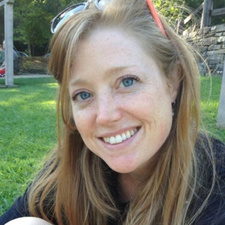Rising Stars: Design and Development of Robust Translational Devices for Veterinary and Medical Applications

Abstract: In this talk, I discuss the development of robust, translational devices for veterinary and medical applications. In the US alone, there are upwards of 500,000 active assistance dogs and costs per candidate dog range between $50,000 and $223,000 to train and raise. Not all dogs that go into service and working dog training as puppies have the temperament to become successful assistance animals, however, it is very difficult to determine if a dog has a temperament suitable for an assistance animal early on in life. My PhD research investigates how aspects of canine temperament can be detected from interactions with sensors placed inside of dog toys that I designed and built. My work develops models that use sensor data to predict the success of assistance dogs in advanced training. Earlier and more accurate prediction of assistance dog placement saves time, resources, and funding. This work was in collaboration with University of Pennsylvania's School of Veterinary Medicine (PennVet) Working Dog Center and Auburn University's Canine Performance Science's program. The goal of this research is to help the US create a quantified breeding program by determining which canine features are most suitable for potential assistance dogs of any age.
In addition to working on tools for quantifying canine interactions, my research explores the development of patient-centered design parameters for novel glucagon therapies. Insulin therapy revolutionized the care of patients with diabetes starting ~100 years ago, yet insulin-induced hypoglycemia remains a serious life-threatening complication of insulin therapy. The development of improved and situation-specific glucagon therapies remains challenging due to an incomplete knowledge of the kinetics of different hypoglycemic events. Thus, this work analyzed continuous glucose monitor (CGM) data from 1135 patients with type 1 diabetes (T1D) representing 246.18 patient years. We show that a surprisingly large proportion of hypoglycemic episodes (20-30%) are follow-on events resulting from under-treatment of prior events and that the average duration of independent hypoglycemic events can last up to 79 to 108 minutes. We further show that the kinetics of hypoglycemic onset and persistence vary significantly by patient history, severity, and time of occurrence. Guided by these findings, we recognize the opportunity to develop high-density, readily soluble, and thermostable (ReST) solid glucagon formulations, and painless application-specific microneedle patches that are in line with the timing needs of T1D patients who are awake and asleep.
Bio: Ceara Byrne is a Computing Innovation Postdoctoral Fellow at MIT interested in building implantable and ingestible devices. She collaborates with Dr. Giovanni Traverso in Mechanical Engineering for research focusing on designing and developing robust medical and veterinary translational devices for capturing and quantifying novel insights into activities and behaviors of individuals. Ceara obtained her PhD at Georgia Institute of Technology, advised by Dr. Melody Jackson and Dr. Thad Starner, as a member of the Animal Computer Interaction lab and the BrainLab. Her PhD research investigated how aspects of canine temperament can be detected from canine interactions with instrumented dog toys. This work was supported by DARPA and completed in collaboration with researchers at PennVet's Working Dog Center and Auburn University's Canine Performance Sciences Center. Ceara is a 2020 Foley Scholar award winner, a 2019 EECS Rising Star, and received the College of Computing (GT) Outstanding Researcher award in 2015. Her work has been published in IMWUT, ACI, IJHCS, and veterinary science journals. Ceara also received her MS and BS from Georgia Institute of Technology in Human-Computer Interaction and Industrial Design, where she focused on designing wearable and assistive technologies. Beyond research, she conducts outreach at local high schools, such as Girls Who Code at Midtown High School in Atlanta, GA, she mentors undergraduate and masters students from universities across the world, and is interested in making the world just a little bit better for her daughter.
A pizza lunch for attendees will be available at 12:00 p.m. in LGRC, Room A112.